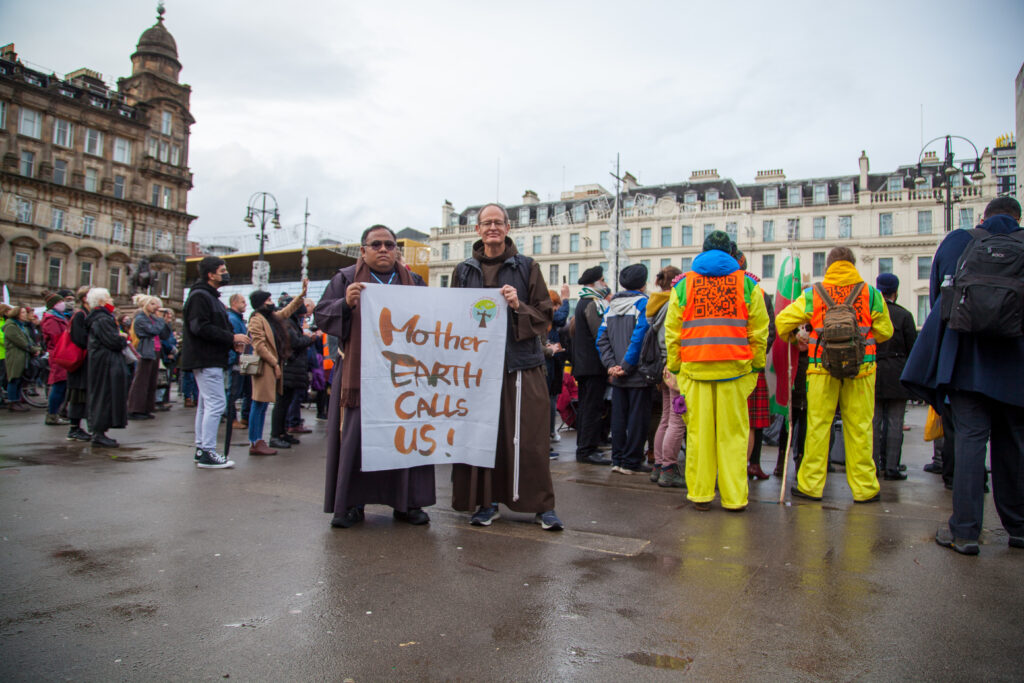From 11 to 22 November, the world will turn its eyes to the 29th UN Climate Conference in Baku, Azerbaijan. As the planet keeps warming due to human activities, the 1.5°C limit established by the Paris Agreement is getting alarmingly closer. Crossing this threshold – and any increase beyond – would have further devastating consequences, such as extreme heatwaves and droughts, glaciers and sea ice melting, accelerating sea level rise, hurricanes, wildfires, and flooding, especially in countries already struggling with the effects of climate change.
The previous COP in Dubai, although reaching some important agreements, has been disappointing to many environmental justice advocates for its lack of ambition and concrete results. Indeed, while science is clear about the need to rapidly phase out fossil fuels if we want to have a chance of meeting the 1.5°C target, world leaders only agreed to “transition away” from fossil fuels. This decision was made amid growing concerns over corporate capture of the negotiations, as COP28 welcomed a record number of fossil fuel lobbyists. After the United Arab Emirates (UAE), the 2024 COP will again be hosted by a country that has announced a major fossil fuel expansion.
Key issues at stake
At each UN Climate Conference, the stakes get higher – as does the need to accelerate meaningful efforts. While the question of how to finance climate change mitigation and adaptation has been prominent every year, negotiators at COP29 – often referred to as the “Finance COP” – are specifically tasked to address the shortfall of funding for these measures. Here are a few things to watch for:
- The New Collective Quantified Goal (NCQG): Governments are scheduled to adopt a new climate finance goal to support developing countries in their climate actions. A key element of the Paris Agreement, the NCQGs will replace the original 100 billion USD target set in 2009. For now, it remains unclear who should pay and how the funds should be managed.
- Updated Nationally Determined Contributions (NDCs): NDCs are plans set by each country to reduce greenhouse gas emissions and adapt to the impacts of climate change. The Paris Agreement requires countries to update their NDCs every 5 years, which means a new set of NDCs is due in 2025. The UAE, Azerbaijan, and Brazil – COP Presidencies Troika – are expected to announce their NDCs at COP29.
- Loss and Damage Fund: A major outcome of COP28 in Dubai was the operationalization of a dedicated fund for responding to loss and damage, which has been a long-time request of developing countries in the negotiations. However, only 700 million USD was pledged at COP28, while vulnerable countries may face as much as 580 billion USD in climate-related damages by 2030. COP29 is expected to review the Fund’s initial report, assess progress, and discuss key issues like eligibility criteria. The goal is to establish a loss and damage fund with clear triggers for quick support delivery, avoiding lengthy project-based funding processes.
What we’ll be advocating for
In recent years, we have witnessed that efforts to reduce greenhouse gas emissions and to adapt to the impacts of climate change have fallen short. But when even adaptation reaches its limits, the losses and damages people suffer escalate. Whether these are economic, such as damage to infrastructure, or non-economic, such as the loss of culture, they need to be addressed.
While in Baku, Franciscans International’s delegation will focus on non-economic loss and damage (NELD), which involves those aspects that are not so easily quantifiable, such as the loss of territory, cultural heritage, and identity, but also the mental and emotional aspects of loss. Although this makes it more difficult to value them, they have equally significant impacts on human rights and well-being.
In the context of the upcoming discussions about the Loss and Damage Fund, it will be crucial to define what constitutes NELD, to emphasize the importance of capturing the full range of issues that should be addressed, and to find ways to ensure effective remedies for those experiencing them. At the same time, the countries most responsible for causing climate change should bear a greater duty to support those who least contributed to it yet are most affected by its impacts.
Our advocacy builds on the ongoing efforts of a faith-based alliance that has been raising NELD at the United Nations. During the 56th Session of the UN Human Rights Council, FI co-organized a side-event, where panelists – including the UN Special Rapporteur on climate change – addressed the numerous ways in which loss and damage intersect with human rights.
Faith-based organizations often have deep-rooted connections with affected communities, positioning them uniquely to raise awareness about the impacts of inadequate financing and adaptation measures on people’s lives. From this perspective, the Geneva Interfaith Forum – of which FI is a member – has been conducting a research project to contribute to a more comprehensive understanding of climate-induced non-economic loss and damage. Key initial findings – including mental health impacts – were presented in September 2024. The final study is expected to be published during COP29.
Where to find us during COP29
- Franciscan Climate Talks
- Informal Interfaith Gathering in the Spirit of Talanoa Dialogue (6 November – Online).
Based on a traditional form of dialogue by the Indigenous People of Fiji to solve problems within the community, we’ll meet to exchange our initiatives, concerns, and hopes in our work for climate justice.
- Beyond Material Loss: Exploring Non-Economic Impacts of Climate Change through Faith-Based Perspectives (13 November – 10:30 Baku / GMT+4 – Faith Pavilion in the Blue zone).
Live stream and recording
- Exploring Non-Economic Impacts of Climate Change: Faith-Based Insights on Loss and Damage (15 November – 11:30 Baku / GMT+4 – Room Side Event 5 in the Blue zone).

